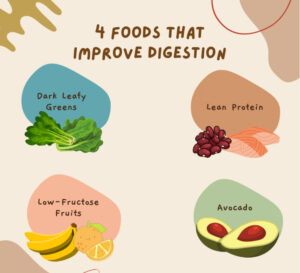Carbohydrates, or carbs for short, are one of the three macronutrients that make up our diet along with protein and fat. They are an essential source of energy for our body and provide the necessary fuel for our daily activities. However, not all carbs are created equal, and some can have negative effects on our health. In this article, we’ll explore the different types of carbs, their benefits, the difference between good and bad carbs, and provide examples of each.

What are Carbohydrates?
Carbohydrates are molecules made up of carbon, hydrogen, and oxygen atoms, and they can be classified into three categories: sugars, starches, and fibers. Sugars are simple carbs that are easily digested by our body and provide a quick source of energy. Starches are complex carbs that take longer to digest and provide a slower release of energy. Fiber is a type of carbohydrate that our body can’t digest, but it’s essential for maintaining digestive health and preventing chronic diseases.
5 Benefits of Carbohydrates
Carbohydrates are essential for providing our body with energy, and they play a crucial role in our brain function, physical activity, and daily bodily processes. Here are 5 benefits of Carbohydrates:
- Provides Energy: Carbohydrates are our body’s main source of energy. When we consume carbohydrates, they are broken down into glucose, which is then transported to our cells to provide energy for physical activity and daily bodily processes.
- Regulates Blood Sugar Levels: Consuming complex carbohydrates, such as whole grains, fruits, and vegetables, can help regulate blood sugar levels. These carbs are digested more slowly, which leads to a gradual and steady release of glucose into the bloodstream, preventing blood sugar spikes and crashes.
- Reduces Inflammation: Some types of carbohydrates, such as fruits, vegetables, and whole grains, contain anti-inflammatory compounds that can help reduce inflammation in the body. Chronic inflammation is linked to a variety of health problems, including heart disease, cancer, and arthritis.
- Promotes Satiety: Carbohydrates can help keep us feeling full and satisfied, which can aid in weight management. Consuming fiber-rich carbs, such as whole grains, fruits, and vegetables, can help slow down digestion and increase feelings of fullness, reducing the likelihood of overeating.
- Enhances Brain Function: Glucose, the primary energy source for our cells, is also essential for our brain function. Our brain relies on glucose for energy to perform cognitive tasks, such as thinking, learning, and memory.
In summary, consuming the right types of carbohydrates can provide our body with energy, regulate blood sugar levels, reduce inflammation, promote satiety, and enhance brain function. It’s important to focus on consuming complex carbs, such as whole grains, fruits, and vegetables, and limiting our intake of refined carbs, such as sugary drinks and snacks.

The Difference between Good and Bad Carbs
Not all carbs are created equal, and some can have negative effects on our health. Good carbs, also known as complex carbs, are unprocessed or minimally processed carbs that are rich in fiber, vitamins, and minerals. These carbs are digested slowly, which provides a slow and steady release of energy and helps regulate blood sugar levels. Examples of good carbs include whole grains, fruits, vegetables, legumes, and nuts.
On the other hand, bad carbs, also known as simple carbs, are highly processed carbs that are low in fiber and nutrients. These carbs are digested quickly, which leads to a rapid rise in blood sugar levels and can contribute to weight gain, inflammation, and chronic diseases. Examples of bad carbs include white bread, sugary drinks, candy, and pastries.
Examples of Good Carbs
Whole grains: brown rice, quinoa, oats, barley, whole wheat bread
Fruits: berries, apples, bananas, oranges, kiwi
Vegetables: leafy greens, broccoli, carrots, sweet potatoes, bell peppers
Legumes: beans, lentils, chickpeas, peas
Nuts and seeds: almonds, walnuts, chia seeds, flaxseeds

Examples of Bad Carbs
White bread, white rice, and pasta made from refined grains
Sugary drinks: soda, sports drinks, fruit juice, sweetened tea, and coffee
Candy and sweets: chocolate, candy bars, pastries, cakes, and cookies

By choosing the right types of carbs, we can maintain a healthy and balanced diet. It’s important to focus on consuming more good carbs and limiting our intake of bad carbs to promote overall health and wellbeing. By making small changes to our diet, such as choosing whole grains instead of refined grains and consuming more fruits and vegetables, we can improve our health and reduce the risk of chronic diseases. Remember, carbs are an essential part of our diet, and by making informed choices, we can enjoy the benefits of this important macronutrient.



